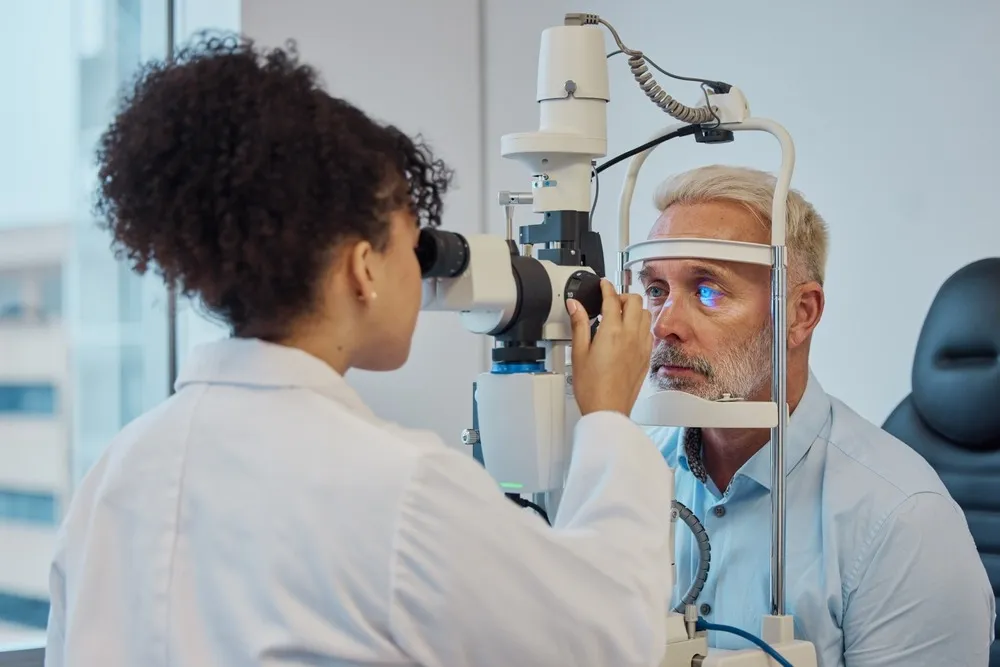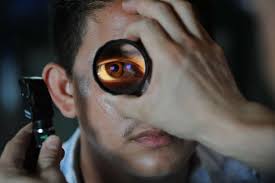Don’t wait for vision issues to arise to book an eye appointment. Regular, comprehensive eye exams are for identifying potential issues early and maintaining long-term eye health. A comprehensive exam goes beyond a simple vision screening, allowing a professional to assess your eyes’ intricate structures, check for underlying health conditions, and provide precise prescriptions.
What are Vision Screenings
It’s common to mistake a vision screening for a complete eye exam, but they serve very different purposes. A vision screening is a basic test designed to identify potential vision issues. This is particularly common for school-aged children or driver’s license renewals. These screenings are quick and can be performed by a nurse or trained volunteer.
A comprehensive eye exam is much more thorough. It is performed by a qualified optometrist or ophthalmologist. This exam includes a series of tests to assess your vision and the overall health of your eyes and can detect a wide range of issues. These include refractive errors like nearsightedness and farsightedness, as well as more serious conditions such as glaucoma and cataracts.
What to Expect During an Eye Exam
A comprehensive eye exam thoroughly evaluates various aspects of your vision and eye health. Key components often include:
- Patient History Review: Your doctor will ask about your medical and family history, vision problems, and conditions like diabetes or high blood pressure.
- Visual Acuity Test: The eye chart test (Snellen chart) measures how clearly you see at different distances.
- Refraction Assessment: Using a phoropter, the doctor determines the exact lens prescription needed for nearsightedness, farsightedness, or astigmatism.
- Retinal Examination (Ophthalmoscopy): By dilating your pupils, the doctor examines the retina and optic nerve for diseases like macular degeneration or glaucoma.
Regular eye exams are a part of maintaining overall health and detecting issues early. By following your eye care professional’s recommendations, you can protect your vision and address any concerns promptly. Prioritizing your eye health today can lead to clearer, healthier vision for the future.
What are Common Vision Issues
Early detection of eye diseases is a major benefit of regular eye exams. Many conditions, such as glaucoma, diabetic retinopathy, and macular degeneration, can advance without noticeable symptoms. These diseases, if left untreated, can cause significant damage before you experience pain or vision loss. During an exam, your eye care professional can identify issues and recommend timely action. This might include prescribing glasses, medication, or referring you to a specialist.
Protect Your Vision for the Future
Your eyesight is a part of your daily life, and taking steps to protect it is a worthwhile investment in your health. While it can be easy to put off an eye appointment, regular comprehensive exams provide a detailed picture of your eye health that a simple screening cannot offer. By making these exams a consistent part of your healthcare routine, you empower yourself and your doctor to address vision issues early and effectively. If you haven’t had a comprehensive eye exam recently, schedule one to make your eyes are getting the care they deserve.
- Decreto Supremo 160: A Complete and Updated Guide
- Dentiloquent: A Complete Professional Guide
- Närkes Elektriska: Your Trusted Partner in Electrical Services in Örebro, Sweden
- Litorotica Tags: Guide for Better Search, Safety, and Clarity
- Exhentaime: The Future of Digital Entertainment in a Connected World





